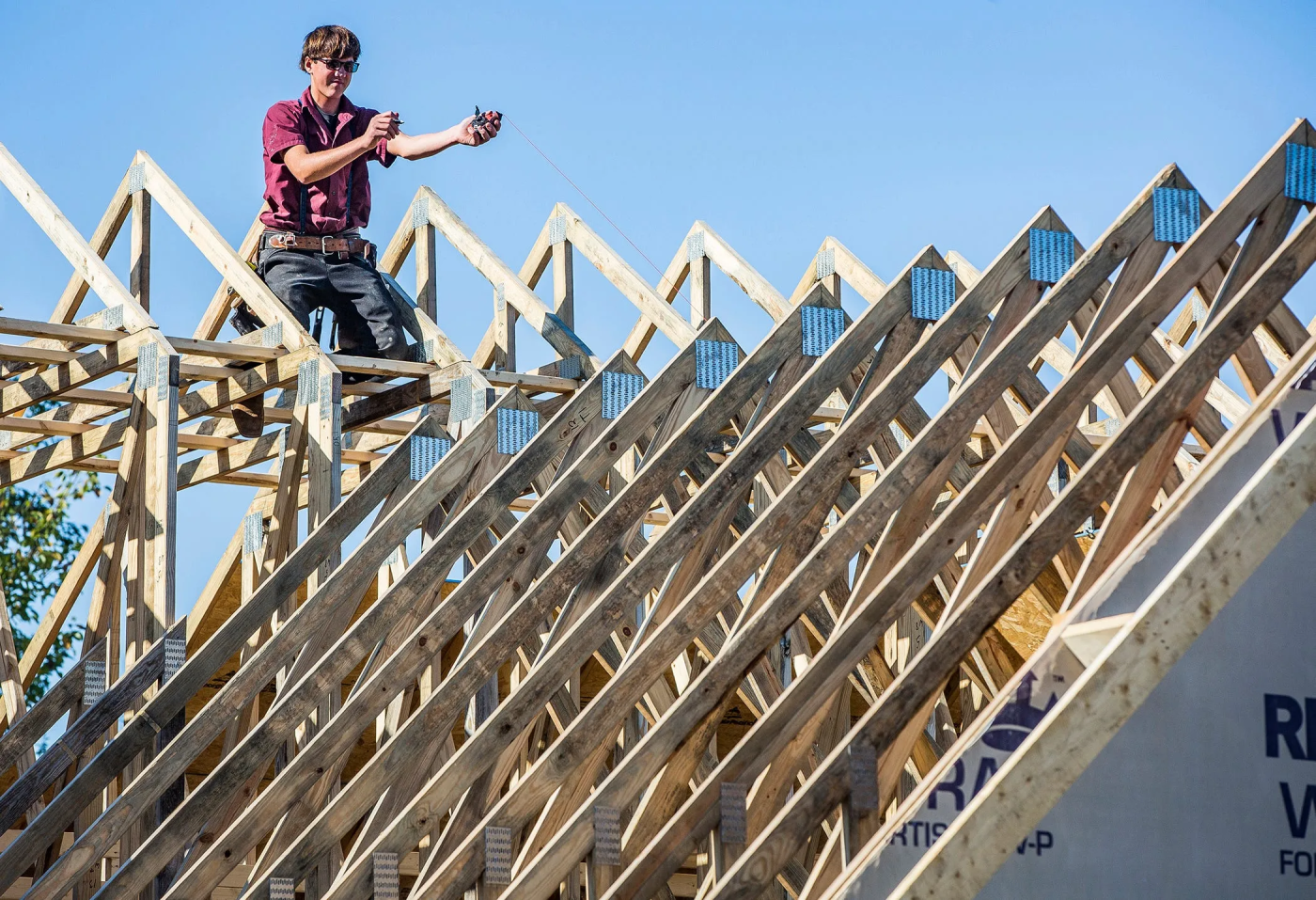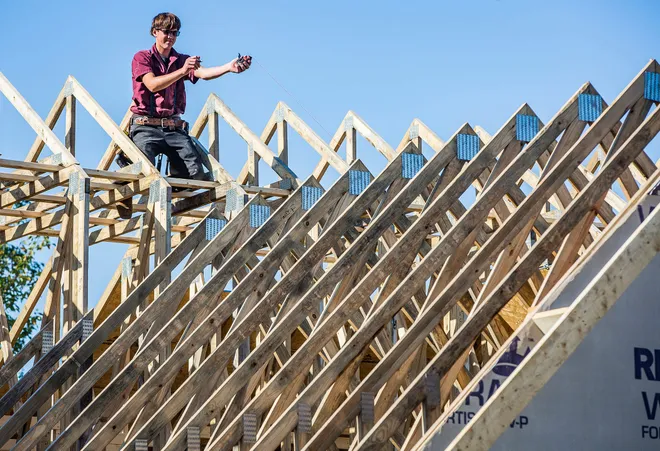
The US is short millions of housing units. Mass deportations could make it worse.
As Donald Trump prepares to take office and implement one of his key campaign promises, deporting immigrants, one question that has been asked is how it could affect the housing market.
Housing of all kinds is in short supply. One of the biggest reasons is that construction of new homes fell sharply during the Great Recession and stayed depressed for years after.
Immigrants make up a significant portion of the construction labor force, and removing them en masse would cripple the industry – not to mention having devastating social and emotional consequences, experts and advocates say.

Despite that, few industry participants have spoken publicly about the potential consequences. So USA TODAY asked the biggest builders in America to weigh in.
Taylor Morrison, NVR Inc., KB Home, and Century Communities Inc. declined to comment. There was no response from D.R. Horton, Lennar Corp., PulteGroup Inc., Meritage, or LGI Homes.
Buy that dream house: See the best mortgage lenders
Clayton Homes referred the inquiry to the Manufactured Housing Institute (MHI), an industry group. In an emailed statement, Dr. Lesli Gooch, the group's CEO, said, “MHI is not concerned with President-elect Trump’s plan to enforce the nation’s immigration law. Our factories and our workers comply with the law, and we are enthusiastic about the opportunity to have a critical role in addressing the nation’s housing supply shortage.”
Another group that agreed to speak was the National Association of Home Builders. “I think that any mass deportation is going to have an impact on the economy. And I think the construction and housing sector is probably going to have an outsize impact versus others,” said chief advocacy officer Ken Wingert.
“We think that we need a comprehensive immigration strategy and reform and hope that Congress will get back to that when they come back in January," Wingert said. "We're in favor of getting more workers into the workforce overall to try to help ease this housing supply crunch that we're in.”
The home builders association has long tallied the need for more construction workers. In a recent report, the group wrote, “the average annual number of occupational openings in construction totals approximately 723,000 a year.”
The same report shows that immigrants account for 25% of the construction workforce overall – but nearly one-third of construction trade jobs. The home builders association has no way of knowing how many of those workers are here legally, Wingert said.
Documented vs. undocumented
Francesc Ortega, an economics professor at Queens College in New York, has studied that issue for many years. Using a demographic framework to analyze U.S. Census Bureau data, Ortega calculates the share of undocumented workers in construction at roughly 15%.
One thing that's clear: The presence of so many immigrants – documented or not – has kept construction labor costs well below what they would be with a mostly native-born workforce. A recent Labor Department analysis shows that as of 2020, foreign-born workers earned less than native-born workers. In the economy as a whole, across all industries, immigrants of all kinds earned roughly 12% less, but in construction specifically, they earned 24% less than native-born workers.
Meanwhile, hourly wages for undocumented construction workers were 36% lower than for documented workers as of 2023, according to an Ortega analysis for USA TODAY.
Ideally, the U.S. would have "an immigration system that's humane and that is based on the rule of law, and we (would) also have an economic system that is not built on the back of exploited workers," said Michael Lukens, executive director for Amica Center for Immigrant Rights, a national advocacy group.
Lukens notes that just the fear of deportations makes it easier for employers to exploit more vulnerable workers. "It is sad that an industry that is built on immigrants is not willing to stand up for immigrants," he told USA TODAY. "I also think it's not surprising when your motive is profit, that you're not intrinsically opposed to a populist message that helps you raise profit."
Mass deportations will make the housing crisis worse
Though it’s natural to assume mass deportations would nudge costs higher, research from Ortega and other academics shows it’s not that simple.
“In an industry like construction, documented and undocumented workers don’t really do the same jobs,” Ortega said. “They basically complement each other rather than substitute for each other.”
That means that even if construction companies suddenly had open positions because their immigrant workers had been deported (or decided to flee before facing such a scenario), it’s not likely that native-born workers would suddenly switch from, say, working in the sales departments of those companies to going out on job sites to do manual labor, he said.
“You cannot just take people and drop them where you want. That's not going to happen,” Ortega said.

That means that in a country that needs millions of additional homes, according to various estimates, taking away any of the workers that build it will only make the crisis worse.
"Mass deportations would cripple the construction and housing market," Lukens said. "It would cripple the agricultural market. It would be incredibly expensive and it would destroy the economy. And it's not acceptable on any level, both the human level and the economic level."
This story has been updated to add new information.

